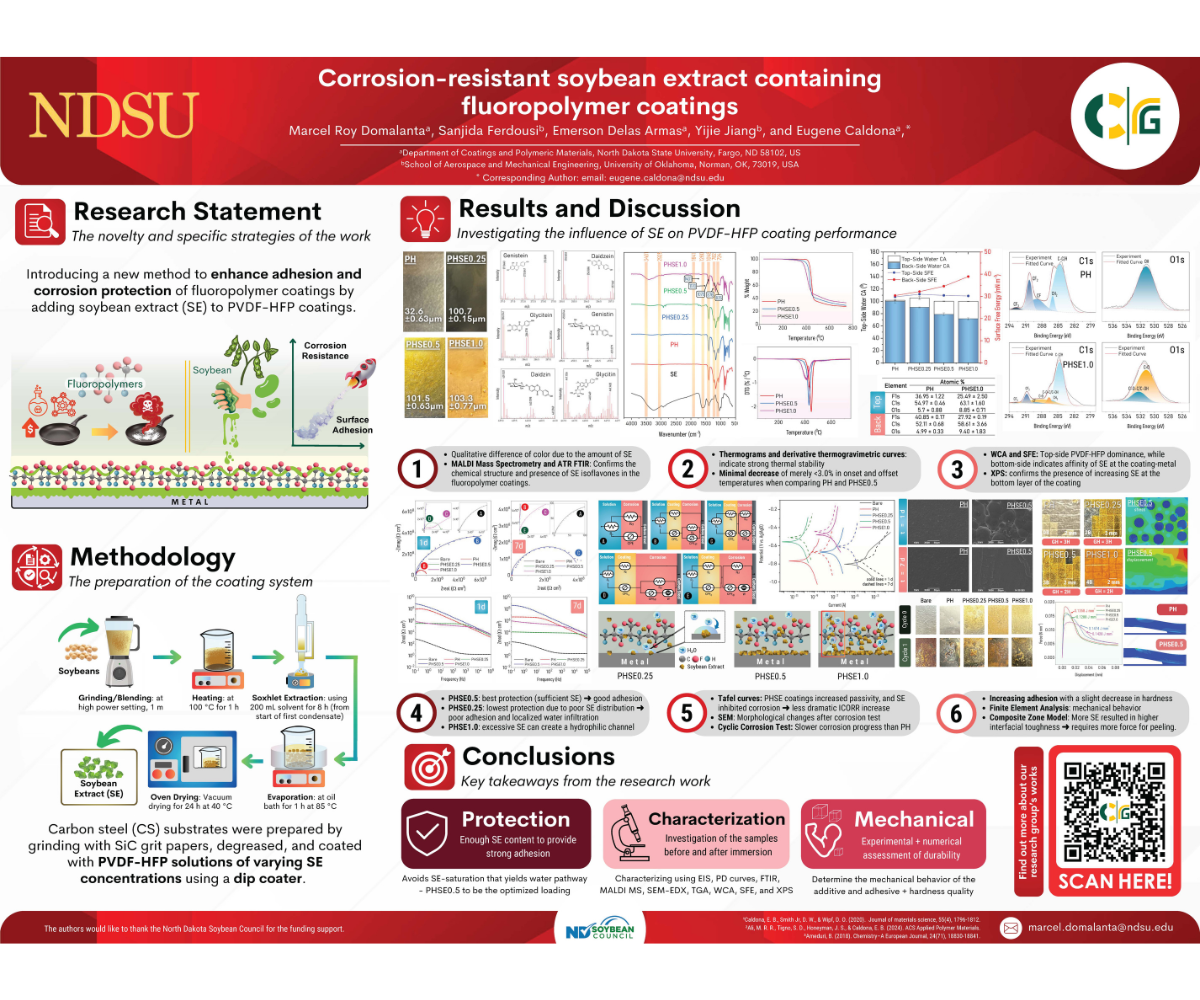
Fluoropolymers, notably poly(vinylidene fluoride-co-hexafluoropropylene) (PH), are rendered to be an excellent choice for superior performance coatings attributed to their exceptional mechanical robustness, thermal resistance, and resistance to chemical attack. However, their low surface energy results in poor adhesion to metal substrates, limiting their application in critical corrosion-resistant systems. To address this challenge, PH was hydroxyl-modified (PHOH) to introduce active functional groups that enhance bonding capabilities. To further amplify these effects and promote sustainability, epoxidized soybean oil (ESO), a bio-derived resin, was incorporated into the formulation. The combination of PHOH and ESO introduces a synergistic effect that significantly enhances both the adhesion and corrosion protection properties of the coating. ESO, rich in reactive sites, interacts with the hydroxyl groups in PHOH, creating a robust network that improves the coating’s mechanical integrity and surface bonding. This study demonstrated that the ESO-modified PHOH coatings, when applied to carbon steel substrates, provided superior corrosion resistance and adhesion compared to unmodified systems. Electrochemical impedance spectroscopy (EIS) results showed high impedance values after 7 days of immersion in 3.5 wt% NaCl, while pull-off adhesion tests confirmed substantial improvements in adhesion strength. Beyond performance, the use of ESO highlights the environmental benefits of integrating bio-based materials into industrial coatings, aligning with the growing demand for sustainable and eco-friendly solutions. This strategic approach, leveraging the synergistic properties of PHOH and ESO, not only improves coating performance but also supports the transition toward greener technologies, offering a viable pathway for high-performance, sustainable corrosion protection in industrial applications.